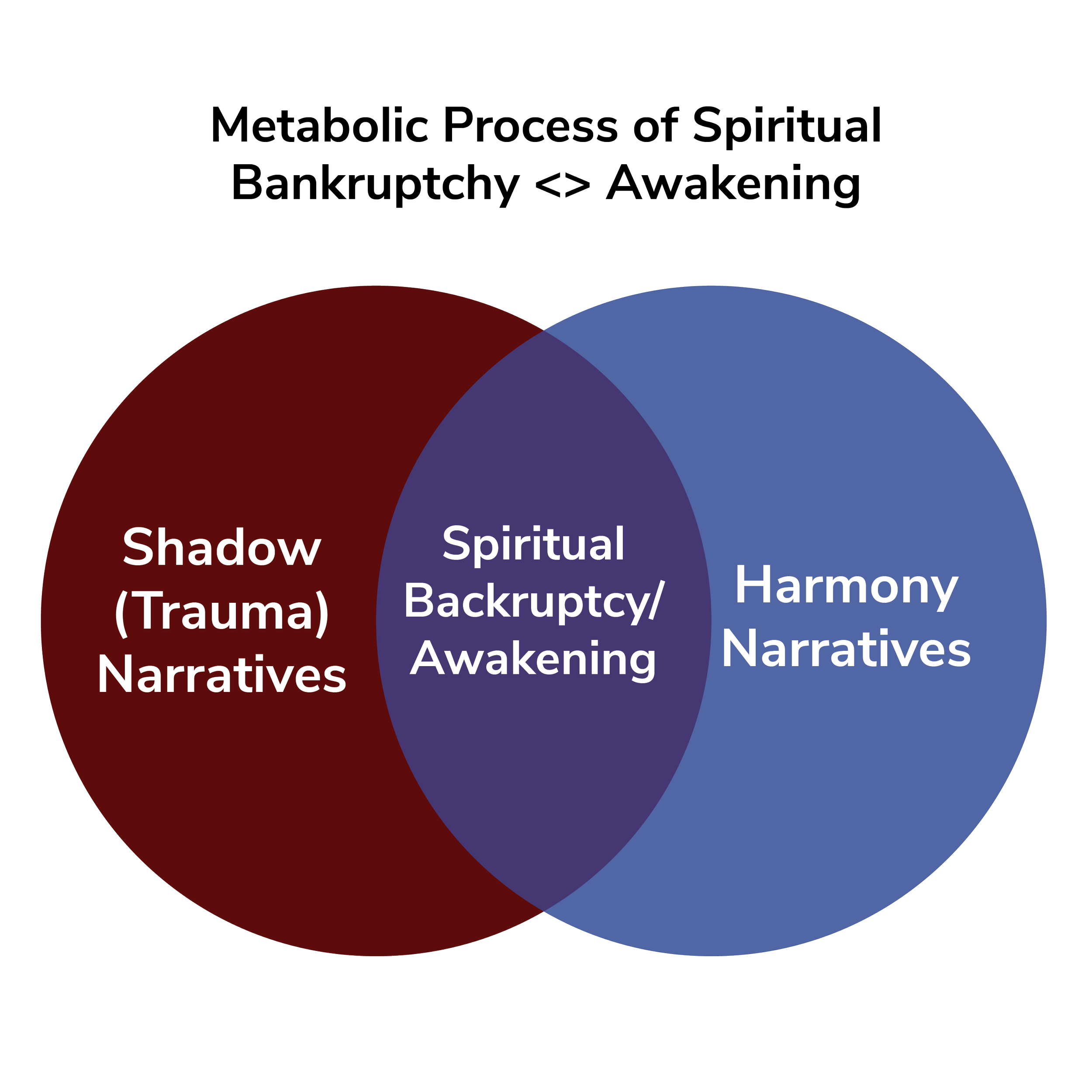Metabolic Processing of Trauma
The metaphor of metabolism, as converting a raw substance (like food) into an energy source through an organic process (like fueling the body) is used here to conceptualize the organic processing (or metabolization) of trauma as a positive energy source for leadership development, practice, and ability. The modality of focus for metabolic processing were spiritual and reflective practices.

For participants, the effects of trauma were expressed as living under 4 shadow (trauma) narratives, which were perpetuated and acted upon unconsciously. This living under the shadow feels like a power they cannot break free from. Living under such narratives creates dissonance not only in the world around them, but most importantly within their inner-most selves. Each shadow narrative perpetuated discord and fragmentation, eventually instigating spiritual breakdown/bankruptcy.
When spiritual breakdown/bankruptcy was coupled with the action of participants “admitting to themselves and/or others an inconvenient truth about themselves and/or others and asking for help,” this ignited the experience of awakening, kindling the metabolic processing for new storylines, known as harmony narratives. These new narratives, based on complementarity and transcendence, become the fuel for who participants are and how they lead (intrapersonally and interpersonally). In this way, the shadowing of trauma was metabolized. Participants became propelled by these 4 new sources of harmony narrative engagement catalyzing individual and systemic growth and change.
This metabolic processing from shadow to harmony narratives, through the use of spiritual and reflective practices, is an ongoing, continual, lifelong experience.
“I am not longer uncomfortable in the uncertainty. I am no longer uncomfortable with the gray. My deepest resentment towards leaders is they think their job is to give more answers. No. They have to ask better questions. What people are craving is that their questions are okay. In fact, the problem is we haven’t gone deep enough into their questions. It doesn’t end. It’s not a one and done. I am still becoming. It takes work, as much as I put into this is exactly what I get out” (P1, P10, P19).

